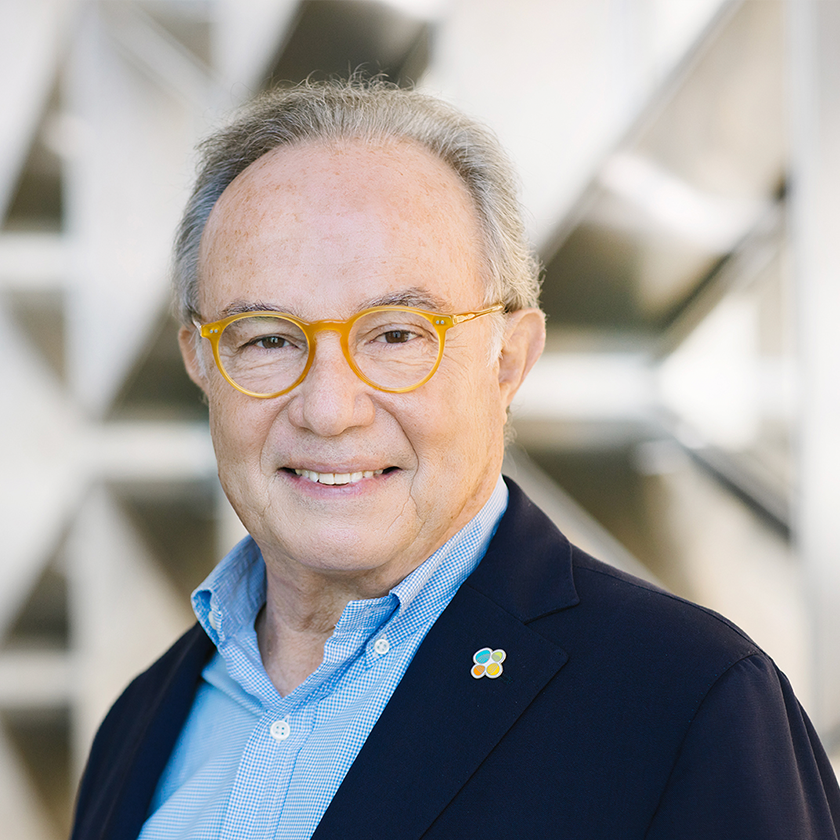
Pierre Magistretti
Ibn Sina Distinguished Professor , Bioscience
Vice President, Research
At the heart of brain function lies a partnership: the metabolic dialogue between astrocytes and neurons. By decoding how glial cells fuel and modulate neuronal activity, we gain insight into the biological roots of cognition. This knowledge not only deepens our understanding of how the brain sustains mental effort, but also paves the way for novel strategies to treat neurodegenerative and psychiatric disorders, where this delicate balance is often disrupted
Program Affiliations
Center of Excellence
Biography
Professor Pierre J. Magistretti is a Distinguished Professor of Biosciences and Vice-President for Research at KAUST, where he previously served as Dean of the Biological and Environmental Sciences and Engineering Division. He is Professor Emeritus at EPFL’s Brain Mind Institute and at the Universities of Lausanne and Geneva, Switzerland, where his pioneering research revealed the key role of astrocytes in brain energy metabolism and neuroprotection. Author of over 300 peer-reviewed publications and co-founder of three biotech startups, he has received numerous international awards and is a member of the Accademia dei Lincei, Academia Europaea, and the Norwegian Academy of Sciences and Letters. He is a past president of both IBRO and FENS and currently serves on multiple scientific advisory boards worldwide.
Research Interests
Professor Magistretti’s research explores the cellular and molecular mechanisms of brain energy metabolism, with a central focus on the metabolic cooperation between astrocytes and neurons. His work has revealed how astrocyte-derived lactate supports synaptic activity, plasticity, and neuroprotection, forming the basis of the astrocyte-neuron lactate shuttle hypothesis. His group employs a combination of molecular biology, imaging, electrophysiology, and transcriptomics to uncover how metabolic signaling regulates brain function and contributes to neurological and psychiatric disorders. This research helps identify novel therapeutic targets for conditions such as Alzheimer’s disease, depression, and cognitive dysfunction by elucidating how energy metabolism sustains mental activity and resilience.
Education Profile
Ph.D., Biology, University of California, San Diego, U.S., 1982
M.D. Doctorate en Médecine, University of Geneva, Switzerland, 1979
Diplôme Fédéral de Médecin, University of Geneva, Switzerland, 1977
Educational Commision for Foreign Medical Graduates Examination, 1977
Maturité Fédérale Type A (Classical Studies), 1977
Awards and Recognitions
Publications
Multimedia
- - LinkedIn
- - Faculty in Focus: Pierre Magistretti
- - KAUST Live Interview
- - Exploring Brain-Energy Metabolism
- - Peeking Inside the Brain
- - Life and career of Pierre J. Magistretti in the History of Neuroscience in Autobiography
- - Roles of the Lactate Shuttle in Brain Physiology and Pathologies
- - The Importance of Interdisciplinary Neuroscience
- - The Neurobiology of Freedom: Neural Plasticity and the Dynamic Unconscious
- - Pierre Magistretti's Interest in Neuroscience,

